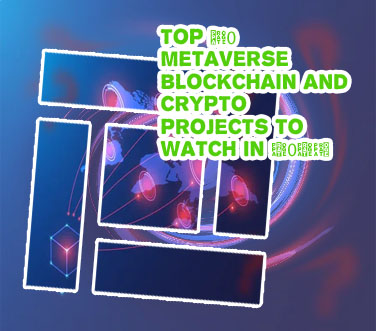
Crypto in metaverse
Buy USDT TRC20 with credit card
As the world of cryptocurrency continues to evolve, more and more attention is being drawn to the concept of integrating crypto into the metaverse. This exciting intersection of technology and finance has the potential to revolutionize the way we interact with virtual worlds. To help you navigate this complex and intriguing topic, we have curated a list of 4 articles that delve into the various aspects of crypto in the metaverse.
The Future of Virtual Currency: How Crypto is Shaping the Metaverse

As we step into the era of the metaverse, virtual currencies are playing an increasingly vital role in shaping this digital landscape. "The Future of Virtual Currency" offers a comprehensive insight into how cryptocurrencies are revolutionizing the way we interact, transact, and engage in virtual environments.
One of the key takeaways from this enlightening read is the concept of decentralized finance (DeFi) within the metaverse. With blockchain technology at its core, DeFi is reshaping traditional financial systems by offering transparent, secure, and efficient solutions for virtual transactions. This innovative approach not only enhances user experience but also opens up new opportunities for businesses and creators within the metaverse.
Furthermore, the book explores the impact of non-fungible tokens (NFTs) on the virtual economy. NFTs have transformed the way we perceive ownership and authenticity in digital assets, paving the way for unique and rare virtual collectibles. By leveraging blockchain technology, NFTs provide a secure and immutable way to verify the provenance of digital assets, creating a new paradigm for digital ownership.
In addition, "The Future of Virtual Currency" delves into the concept of virtual economies powered by cryptocurrencies. With the rise of virtual worlds and gaming platforms, digital currencies are becoming the primary medium of exchange
Exploring the Benefits of Using Cryptocurrency in Virtual Worlds
The integration of cryptocurrency into virtual worlds is revolutionizing the way we interact and transact within these digital environments. Cryptocurrencies like Bitcoin and Ethereum are providing virtual world users with a secure, decentralized, and efficient means of buying, selling, and trading virtual goods and services.
One of the key benefits of using cryptocurrency in virtual worlds is the ability to conduct transactions quickly and securely. With traditional payment methods, users often face long processing times and high fees. Cryptocurrency eliminates these issues by enabling instant transactions at a fraction of the cost.
Furthermore, the use of cryptocurrency in virtual worlds opens up new opportunities for creators and developers to monetize their content. By accepting cryptocurrency payments for virtual goods and services, creators can reach a global audience without the need for traditional banking infrastructure.
Prominent figures in the gaming industry, such as Atari and Square Enix, have already begun to embrace cryptocurrency as a means of enhancing the user experience in virtual worlds. In addition, virtual worlds like Decentraland and The Sandbox are leveraging blockchain technology to create decentralized virtual economies where users can truly own and control their digital assets.
As the adoption of cryptocurrency continues to grow, we can expect to see even more innovative use cases emerge in virtual worlds. From virtual real estate transactions to in-game microtransactions, the
NFTs and Virtual Real Estate: The Intersection of Crypto and the Metaverse
In recent years, the rise of NFTs (non-fungible tokens) has revolutionized the way we perceive ownership in the digital world. These unique digital assets have paved the way for a new era of virtual real estate within the metaverse, a collective virtual shared space that is created by the convergence of physical and virtual reality.
NFTs have enabled individuals to purchase, own, and trade virtual real estate within the metaverse using blockchain technology. This intersection of crypto and the metaverse has opened up a world of possibilities for investors, creators, and gamers alike. Virtual real estate in the metaverse can range from virtual land, buildings, and even entire virtual worlds.
One of the key advantages of owning virtual real estate through NFTs is the ability to monetize these assets through various means such as renting out virtual spaces, hosting events, and selling virtual products. Additionally, owning virtual real estate can also provide a sense of status and exclusivity within the metaverse community.
As the metaverse continues to expand and evolve, the intersection of NFTs and virtual real estate will play a crucial role in shaping the future of digital ownership and virtual economies. Understanding the potential of this emerging trend is essential for anyone interested in the intersection of crypto and the metaverse
Challenges and Opportunities: Integrating Blockchain Technology into Virtual Environments
Blockchain technology has revolutionized the way we think about data security and integrity in virtual environments. This innovative technology, first introduced through the creation of Bitcoin in 2009 by an unknown person or group of people using the pseudonym Satoshi Nakamoto, has since found applications in various industries beyond cryptocurrency.
One of the main challenges in integrating blockchain technology into virtual environments is ensuring scalability and interoperability. As blockchain networks grow, they face the challenge of handling a large number of transactions while maintaining high levels of security and decentralization. Several solutions have been proposed to address these challenges, including the development of new consensus algorithms and the use of sidechains.
Despite these challenges, the opportunities presented by blockchain technology in virtual environments are vast. For example, blockchain technology can be used to create secure and transparent digital identities, enabling users to control their personal data and privacy online. It can also be used to create decentralized marketplaces for virtual goods and services, allowing users to trade assets securely without the need for intermediaries.
Overall, the integration of blockchain technology into virtual environments has the potential to revolutionize the way we interact online. By addressing challenges such as scalability and interoperability, we can unlock the full potential of this technology and create a more secure and efficient virtual world.
